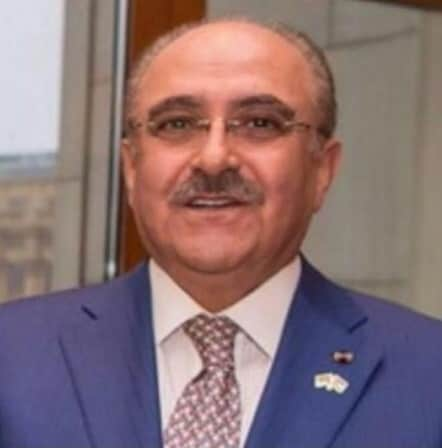Ahead of the 25th anniversary of the Israel-Jordan peace treaty on October 26, 2019, the Jordanian press published several articles on this topic. All of these articles attacked Israel's policy towards Jordan and the Palestinians since the signing of the treaty, and expressed pessimism regarding its future.[1]
In fact, the discourse on Israel in the Jordanian press has been characterized by hostility throughout the past year, amid concerns in the kingdom about the Trump administration's "Deal of the Century" and its impact on Jordan's stability and interests,[2] and also following declarations by Israeli officials regarding Jerusalem and the Jordan Valley, which were likewise perceived as a threat to Jordan's interests. The Jordanian press published numerous articles critical of Israel, which called to cancel the peace treaty and even urged the Palestinians to launch a new intifada, and praised attacks on Israelis and the Palestinians' willingness to die as martyrs. Some of the articles called Israel a "cancer" and an "alien corn" and included antisemitic motifs.[3]
However, alongside these expressions of hostility towards Israel and its policy, there were also occasional articles that defended the peace treaty with it. They argued that the treaty serves Jordan, and that the kingdom must respect an agreement it signed freely.[4] Notable among these articles was an exceptional piece by Jordanian diplomat Ziad Khazer Al-Majali, who served as Jordan's ambassador to the Palestinian Authority, to Russia and to Lebanon. In the article, published March 25, 2019 in the government daily Al-Rai, he defended the peace treaty and complained that it is under constant attack in Jordan, including by former and current MPs and officials. He reminded his readers that King Hussein, who signed the treaty, described it as his "gift" to the Jordanian people, and called on Jordanians to stand firm and not let "the proponents of the culture of aggression and hatred poison the atmosphere of moderation and love of peace that we enjoy."
The following are excerpts from his article:[5]

Ziad Khazer Al-Majali (image: Al-Rai, Jordan)
"When a state of military aggression was imposed on the region over half a century ago, this Jordanian homeland purged [the shame] of some of the [Arab] nation's naksas[6] by means of its victory in the [battle of] Karameh,[7] which has gone down in history and whose anniversary [we] marked several days ago. [But] when the conditions in the region became ripe, and there was an international desire for peace, we came, along with our [Arab] brethren and based on an Arab decision, to the Madrid Conference.[8] Since some believed that each Arab side should resolve its problems [with Israel] separately, we reached a peace treaty [with this country], after our [Palestinian] brethren west of the [Jordan] River had already attained the Oslo Accords...
"Attacking the Jordan-Israel peace treaty has become an [opt-repeated] refrain [in Jordan], which necessarily accompanies every move and election statement and most of the speeches and interviews given by former Jordanian officials, including senior ones. [Now,] I respect the opinions of others, and believe that people outside the state mechanisms have the right to [express] a differing or critical position on the law ratifying the peace treaty [with Israel]. I [also] lack the legal understanding to assess or explain why respectable former and current MPs attack an treaty that was approved by other respectable MPs in the past and was officially recorded by the U.N., as required by Article 102 of this organization's charter. [Furthermore,] before people attack me, let me acknowledge that, since the murder of [Israeli] prime minister Yitzhak Rabin, most Israeli leaders have not believed in the principles and the international resolutions that formed the basis for launching the [Israeli-Arab] peace efforts, especially U.N. Security Council resolutions 242 and 338, [and have not believed] in the Palestinian people's right to self-determination on its national soil. This is why they bargain over and delay the implementation of some decisions that were agreed upon in the Oslo, Camp David and Cairo [treatys between Israel and the Palestinians]. However, I am also aware that [the Israelis'] hidden goal has always been to uproot the belief in the culture of peace from the Arab mind and in particular from the Palestinian mind, so they can complain to the international public that the Arabs do not want peace...
"The words spoken by the [king] Hussein about the [peace] treaty are still etched in my memory. [He said]: 'this is my gift to my Jordanian people.' The late Hussein understood the reality at the time and foresaw the future we are experiencing today... The Jordanians have no doubt as to their national entity, but that does not mean that Jordan is not in the cross-hairs [of certain forces and countries]... and this is the most difficult test of the steadfastness of the united Jordanian people. One of the most important aspects of this steadfastness is that [the Jordanians] do not allow any advocate of the culture of aggression and hatred to poison the culture of moderateness and love of peace that we enjoy and wish [to maintain] for the sake of our future generations."[9]
[1] See e.g., Al-Rai (Jordan), October 7, 2019; ammonnews.net, October 13, 2019.
[2] See MEMRI Inquiry & Analysis Series No. 1448, Concern In Jordan About 'Deal Of The Century,' Possible Harm To Jordan's Special Status In Jerusalem, April 8, 2019.
[3] See MEMRI Special Dispatch No. 8079, Articles In Jordanian Press Call For New Intifada In West Bank, To Thwart The 'Deal Of The Century', May 22, 2019; Special Dispatch No. 8044, Jordanian Journalist: Israel's Leaders Are Implementing 'The Protocols Of The Elders Of Zion' In Full, May 2, 2019; Special Dispatch No. 7954, Praise, Admiration In Palestinian Authority, Jordan For Palestinian Terrorist Who Killed Israelis In West Bank, March 22, 2019; Special Dispatch No. 7811, Columnists In Jordanian 'Al-Dustour' Daily Praise Terror Attacks In West Bank, Palestinians' Readiness To Die As Martyrs, December 12, 2018; see also Al-Dustour (Jordan), September 30, 2019.
[4] See MEMRI Special Dispatch No. 8236, Senior Jordanian Journalist's Response To Calls For Cancelling Jordan-Israel Peace Treaty: The Decision-Makers Must Proceed With Caution; Cancelling Treaty May Bring About Cancellation Of Jordan's Custodianship Of Holy Sites In Jerusalem, August 22, 2019; Special Dispatch No. 7829, Former Jordanian Minister Condemns Israeli Flag Incident: Had Israel Done The Same To Jordanian Flag, We Would Have 'Raised Hell Against Israel', January 3, 2019; Special Dispatch No. 7251, Senior Jordanian Columnists Warn Against Cancelling Peace Treaty With Israel, December 27, 2017.
[5] Al-Rai (Jordan), March 25, 2019.
[6] Naksa ("setback") is an Arabic term for the Arab defeat in the 1967 war with Israel.
[7] The battle of Karameh between the Israel and combined forces of the PLO and the Jordanian army on March 21, 1968 is regarded by Jordan as a victory since the Israeli side suffered many losses and failed to achieve all its objectives.
[8] The October 1991 Madrid Conference, sponsored by the U.S. and the USSR and aimed at promoting peace between Israel and the Palestinians and Arabs, led to talks between Israel and Jordan that eventually brought about the 1994 Jordan-Israel peace treaty.
[9] Al-Rai (Jordan), March 25, 2019.








